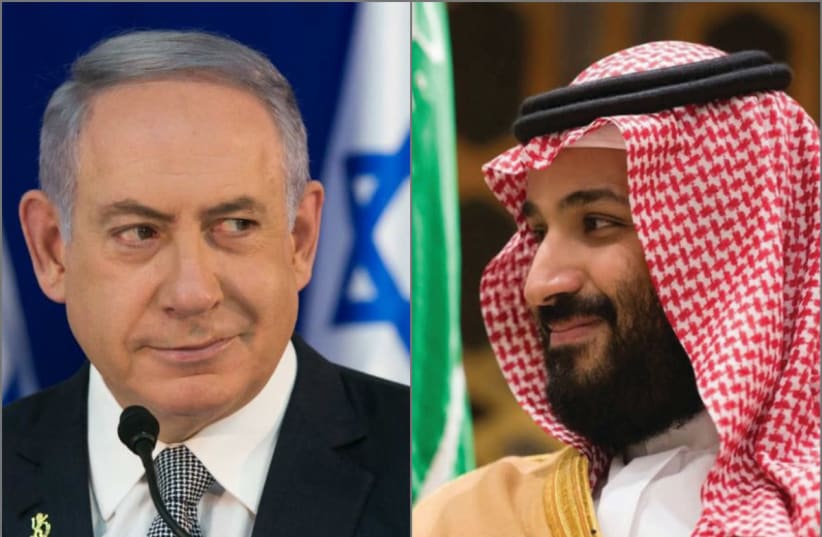The Israeli and Saudi sides discussed Iran and normalization, The Wall Street Journal reported, citing a senior Saudi adviser.Netanyahu said in a Likud faction meeting that “for years, [he] never commented on these matters and will not start now. For years, I have spared no effort in strengthening Israel and expanding the circle of peace.”Still, Education Minister Yoav Gallant confirmed that the meeting in Saudi Arabia took place, calling it an “amazing achievement” and “a matter of great importance” in an interview with Army Radio.Saudi Foreign Minister Prince Faisal bin Farhan denied that the crown prince met with Israeli officials during the meeting with Pompeo, saying, “the only officials present were American and Saudi.” However, he did not deny that any meeting between MBS and Netanyahu took place.Farhan’s denial is likely a reflection of Saudi King Salman’s continued reticence to make his country’s warming ties with Israel official.US President Donald Trump mentioned the possibility that Saudi Arabia would join the Abraham Accords Israel signed with other Gulf states in recent months, but reports came out immediately afterward of a generational divide, with the 84-year-old king remaining loyal to the traditional Saudi position – that peace with a Palestinian state must come before normalization with Israel – while the 35-year-old crown prince supports open ties with the Jewish state.The trip was kept tightly under wraps in Israel as it was being planned for more than a month, and neither Defense Minister Benny Gantz nor Foreign Minister Gabi Ashkenazi were informed before it took place. IDF Chief of Staff Aviv Kochavi was also uninformed, though Netanyahu’s military secretary did participate in the meeting.Pompeo has encouraged Saudi Arabia and other Arab states to follow the United Arab Emirates and Bahrain in establishing diplomatic relations with Israel. Thus far, Saudi Arabia has only allowed Israel to fly over its airspace.On Sunday, however, Prince Faisal told Reuters that normalization with Israel would only come after “a permanent and comprehensive peace agreement between the Palestinians and the Israelis including the establishment of a Palestinian state on 1967 borders.”The minister said his country has “supported normalization with Israel for a long time,” pointing out that they authored the Saudi Peace Initiative that would have the Arab world establish ties with Israel in exchange for their vision of a two-state solution.The meeting took place in Neom, a new city in northern Saudi Arabia on the Red Sea meant to show off the kingdom’s technological advancement.Meetings between Netanyahu and senior Saudi officials had been discussed several times in the past, going back nearly 10 years. A former official close to the prime minister said that early in the previous decade, there were attempts to have Netanyahu meet top Saudi officials on an American ship in the Red Sea, which did not come to fruition.The meeting would have taken place around the same time as a coronavirus cabinet meeting was scheduled to take place. The Prime Minister’s Office released a statement on Sunday that the cabinet meeting would be pushed off because ministers Izhar Shay and Ze’ev Elkin needed more time to work on their digital surveillance program, which turned out to be a cover story that had not been coordinated with Shay.ABSOLUTELY rare Israeli flight direct to new Saudi mega-city Neom on Red Sea shoreIt was Bibi's ex-fav bizjet t7-cpx. Back to Tel Aviv after 5 hours on ground pic.twitter.com/Ty9aedYbsK
— avi scharf (@avischarf) November 23, 2020
Netanyahu meets Saudi crown prince MBS, Pompeo in Saudi Arabia
The plane returned to Israel after only a few hours.
